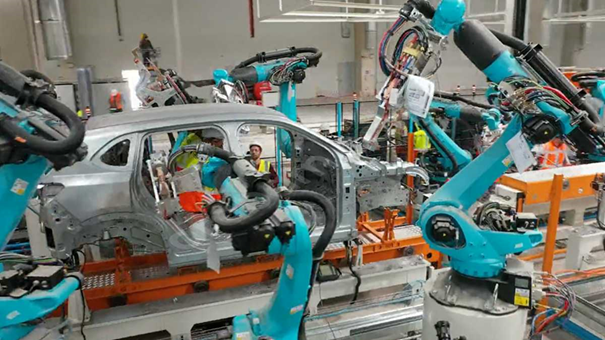In the most general sense, mechatronics engineering deals with the problem of directing a system to the desired state with appropriate software and hardware. After the industrial revolution, some problems that occurred due to the rapidly developing technology and the rapid increase in production led people to seek new ways to get more efficiency. The use of the information obtained as a result of the research in the industry and other systems that produce from the industry has created synergy between different engineering fields and has led to the birth of a new interdisciplinary engineering branch, “Mechatronics Engineering.
Mechatronics Engineering is one of the major engineering disciplines that inspires the future and guides various extraordinary technological leaps that have the potential to shape the future. Mechatronics Engineering graduate programs within our university meet the demand for highly qualified personnel in the field of Mechatronics Engineering in academia and industry.
The program is for graduates of Mechatronics Engineering undergraduate programs available at Karabuk University and graduate undergraduate programs at other universities. The program develops students' independent research abilities. Students will achieve these goals through a combination of coursework and research toward completing a thesis.
A master's degree can be a vital step if you want to explore solutions to complex problems and support next-generation products, devices, and groundbreaking discoveries. Earning a master's degree in Mechatronics Engineering can deepen your knowledge of some of the most fascinating challenges posed today while opening career opportunities in technical organizations.
Today, the expectations from the industry are more economical, quality, and error-free products. Since meeting this need cannot be achieved with conventional human-based production and classical design methods, system design with the Mechatronics approach is required today. Mechatronics engineers who can use their mechanical, electrical, electronic, control, and software knowledge synergistically for problem-solving are frequently needed in the industry.
Modern systems used in medicine and medical technologies, control and navigation of unmanned land and air vehicles, smart land vehicles and interactive traffic systems, robotic systems, air conditioning systems, and factory automation systems are among the application areas of Mechatronics. As can be seen, the field of Mechatronics is a rapidly developing branch of science that covers almost all of today's modern engineering systems.
Click for graduate program
information.
Study Subjects:
• Mechatronics System Modeling and Design
• Modeling, Simulation and System Determination
• Industrial automation
• Robotics
• Process Control, Measurement, and Instrumentation
• Motion Control Systems (Servo Systems, Electric Transportation Systems, etc.)
• Drive Systems (Electric, Electronic, Pneumatic and Hydraulic)
• Intelligent Systems (Fuzzy Control, Artificial Neural Networks, Genetic Algorithms etc.)
• Control of energy systems
Goals:
To train engineers who develop economic methods for the benefit of mankind by using the knowledge gained through study, experimentation, and application from mathematical and natural sciences wisely.
To prepare students for a successful engineering career by gaining the ability to apply their knowledge of mathematics, science, and engineering to Mechatronics Engineering problems.
To acquire the necessary theoretical and practical knowledge to design a system, product component, and process in accordance with relevant standards and limitations, as well as considering economy, efficiency, and environmental and social impacts.
To gain the ability to identify, formulate, model, analyze and solve Mechatronics Engineering problems to design and conduct experiments when necessary, and to analyze and interpret the results.
To enable them to use the necessary modern engineering, calculation, and presentation equipment for this purpose.
 Job Opportunities:
Job Opportunities:
Research and development, production, and testing in public institutions and private sectors, operating in fields such as industrial automation, wireless communication, signal processing, computer and software, automatic control, biomedical, measuring instruments, robotics, artificial intelligence, microwave, antennas, and unmanned aerial vehicles. There are job opportunities in work areas such as quality control, marketing, operation, maintenance, and repair. Students who graduate from this program can apply to study in doctoral programs.
The fact that Mechatronics Engineers can apply their skills in almost every subject in today's world offers them wide working opportunities in their engineering life. Students who graduate from the Mechatronics master's program can easily find a job, and some of them even start working while they are still students.
Graduates of the Mechatronics engineering master's program can also work as research, design, and production engineers in small and medium-sized businesses that design and manufacture Mechatronic systems. Students who complete this program also could start their own businesses operating in the field of Mechatronics with a small capital.
APPLICATION REQUIREMENTS TO MASTER PROGRAMS
Candidates apply to the Institute with the required documents within the announced application period. The candidate must meet the following conditions according to the type of master's program he/she is applying for: